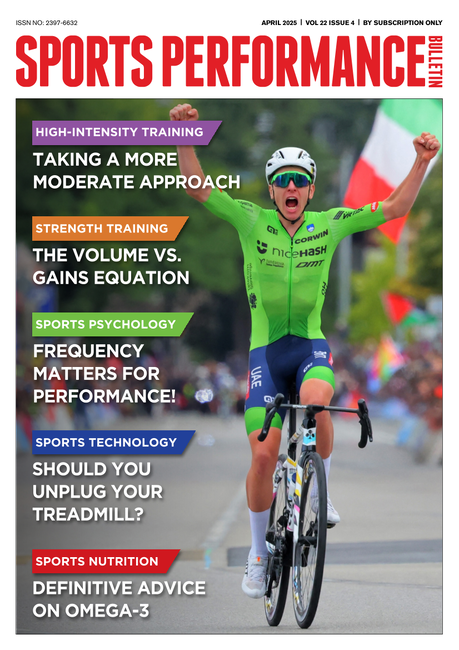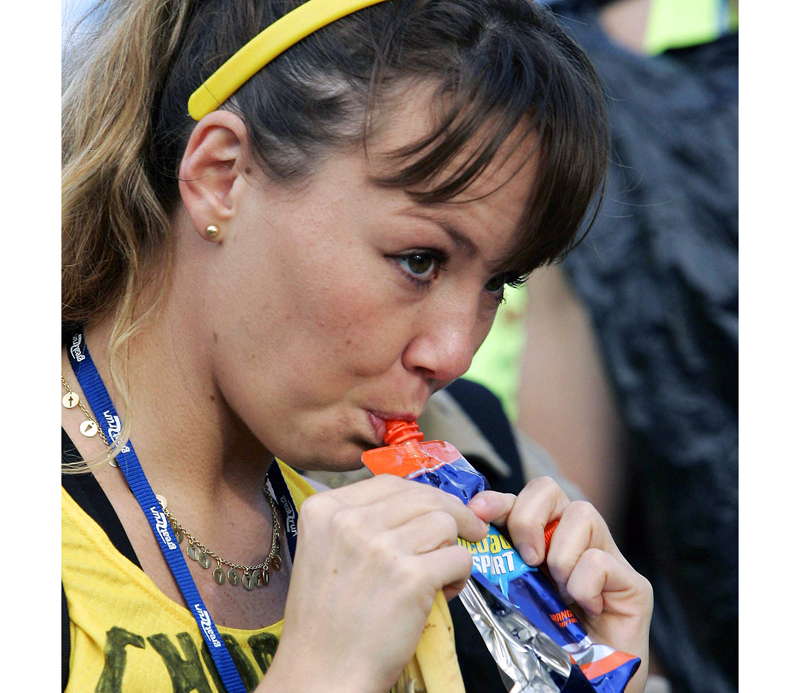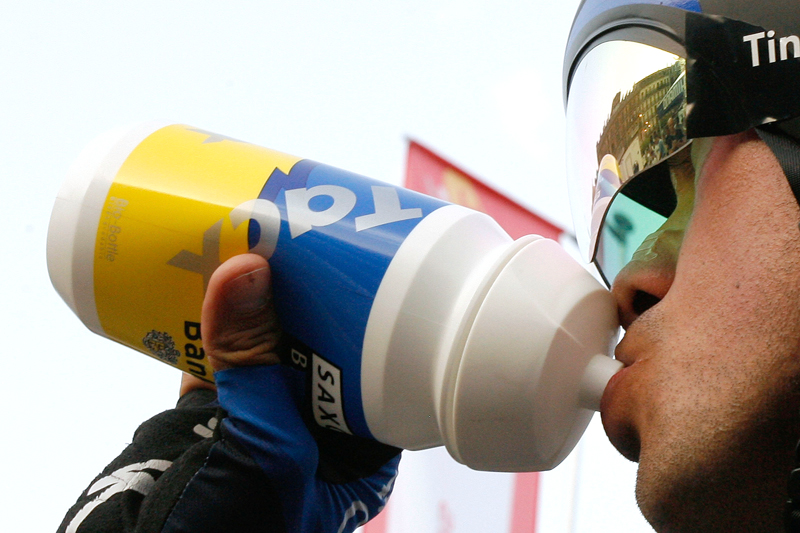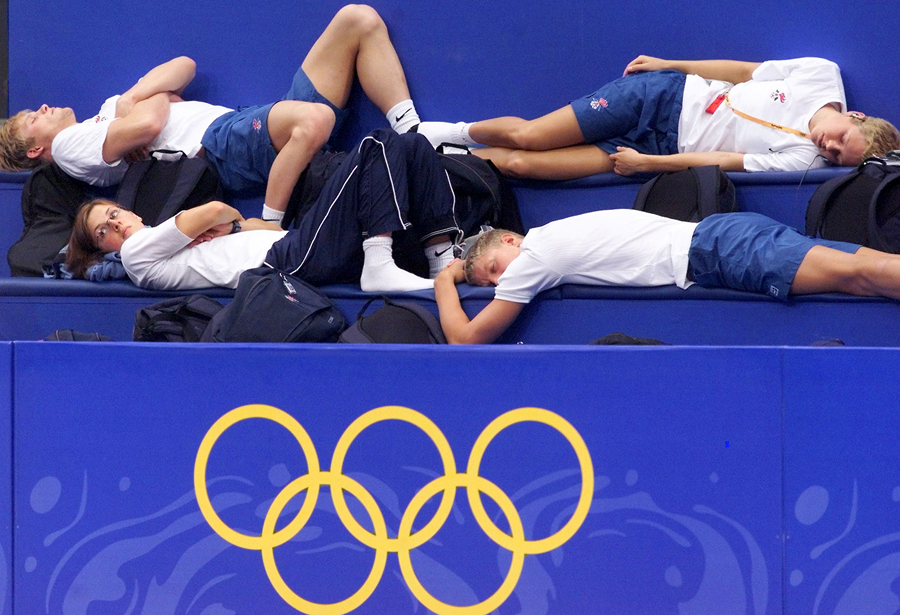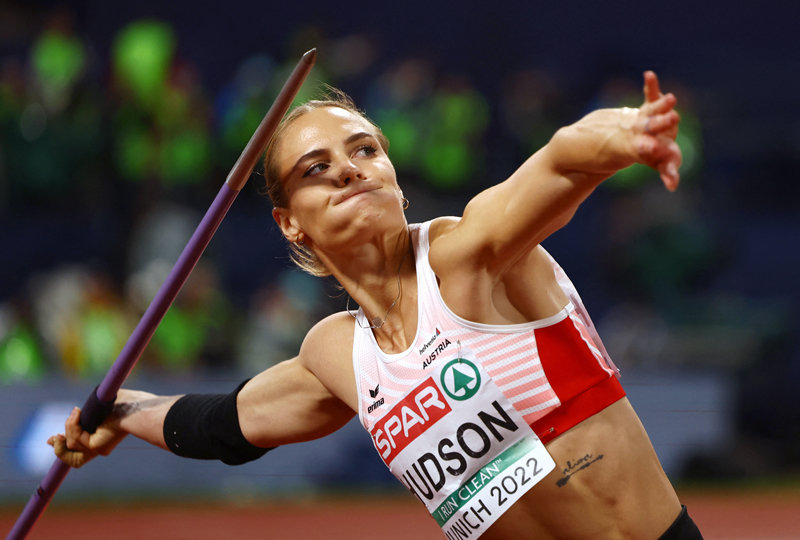Glycerol is a 3-carbon molecule, which is produced naturally in the body as a result of normal metabolism. Although classed as an alcohol, glycerol plays a number of important roles in the body. For example, phosphoglycerides, which consist of a glycerol backbone bonded to two fatty acid chains and another alcohol, are an important component of cell membranes. Glycerol is also used to store fatty acids in the body; in this process, three fatty acid chains are chemically bonded to a glycerol molecule – hence the term ‘triglyceride’.Pure glycerol is a sweet-tasting clear syrupy liquid which, when mixed with water solutions, is able to increase their concentration or, more technically, their osmolarity. Because the human body requires the osmolarity of body fluids to remain fairly constant, ingesting glycerol stimulates the absorption and retention of water in order to counter the increase in osmolarity that would otherwise occur.
To put it another way, ingesting a solution of glycerol and water allows the ingested water to be retained by the body and excreted only when the extra glycerol is either removed by the kidneys or broken down by the body(1).
Endurance athletes competing in hot and humid conditions need to maintain maximum hydration, since fluid losses of as little as 1.5 litres can significantly impair performance. Moreover, studies have shown that many athletes do not drink enough to offset dehydration during competition, even with unlimited access to fluid(2).
A temporary state of hyper-hydration can be achieved by drinking lots of water in excess of the body’s needs. However this situation is very transitory because the consequent fall in osmolarity stimulates the kidneys to remove most of the excess water within an hour, requiring frequent trips to the loo, which are not exactly conducive to fast race times!
However, adding glycerol to the water prevents this drop in osmolarity and can prolong the period of hyper-hydration for up to four hours, which explains its use by athletes seeking to enhance endurance performance in hot weather conditions(3).
On the face of it, increasing and maintaining hydration levels in endurance athletes seems a sure-fire way of enhancing hot weather performance. And there is no doubt that ingesting glycerol solutions does increase water retention by anything up to a litre(4,5).
The question is, however, whether this increased hydration translates directly into superior hot-weather performances. And this is where things start to get a bit less clear.
Glycerol v orange juice
A study carried out in 1990 investigated whether glycerol hyper-hydration altered sweating, regulation of body temperature and cardiovascular function during exercise in a hot environment (42°C and 25% relative humidity)(3). Six averagely fit people completed three 90- minute runs at around 60% of their VO2max after drinking either orange juice, diluted orange juice or glycerol solution.After glycerol ingestion, subjects produced, on average, 500ml less urine and retained 700ml more total body water than those in the noglycerol groups. Glycerol-treated subjects also sweated more and had smaller increases in core temperature throughout the 90 minutes of exercise. However, the small sample size and the relatively low work rate used in the trial means its results should be interpreted with caution.
Two subsequent studies examined the effects of glycerol ingestion in 11 subjects of moderate-tohigh endurance fitness(6). Over a 90-minute period, the subjects consumed either a glycerol solution or a placebo drink; then, an hour later, they cycled at 74% of their VO2max until they could not maintain their pedalling cadence above 60rpm (revolutions per minute).
As expected, glycerol intake increased preexercise body water by 730ml and decreased excreted urine volume by 670ml. But, more importantly, subjects who had taken glycerol exercised significantly longer to fatigue, averaging around 94 minutes compared with just 73 minutes for those on placebo.
The researchers then went on to look at whether these positive effects were still evident when carbohydrate was ingested at the same time, as would be the case for most athletes during prolonged endurance events. Seven highly trained endurance athletes completed the same trial described above, but this time the subjects in both groups also consumed a 5% glucose solution at the rate of 3ml per kg of body weight every 20 minutes.
Analysis of the results showed that, while the glycerol solution still led to the retention of more body water, it was now just 100ml more than for those on placebo. Similarly, the difference in excreted urine volume was reduced to 92ml. Nevertheless, glycerol still prolonged the time taken to reach fatigue (123 minutes compared with 99 for those on placebo!).
Other studies have cast doubt on the efficacy of glycerol, with two subsequent investigations failing to find any significant benefits(4,7). However, both of these studies used very gentle exercise intensities (around 50% VO2max), which makes their results less relevant to athletes. An earlier study also showed no benefits, but as well as using a low exercise intensity (50% VO2max), this one also lacked a pre-exercise hyper-hydration procedure, which makes its results fairly meaningless(8).
On balance, this early research comes down firmly in favour of glycerol. More recent research, however, is rather less clear-cut. Benefits were observed in a study of six endurance-trained cyclists, who ingested either a glycerol solution or the same volume of placebo two hours before undertaking 90 minutes of steady state cycling at 98% of lactate threshold in dry heat (35°C, 30% relative humidity)(9). The cyclists were also allowed to ingest a carbohydrate drink (6% solution) at 15-minute intervals during the ride. Afterwards, they cycled for a further 15 minutes while their power outputs were assessed.
As expected, pre-exercise urine volume was lower when taking glycerol solution and heart rate was also significantly reduced. And, although the researchers failed to find any significant metabolic differences (such as lactate accumulation) between the glycerol and placebo groups, the work performed in the 15-minute assessment period was 5% higher in those taking glycerol.
Although there were no significant differences in sweat loss between the glycerol and placebo conditions, glycerol-supplemented triathletes excreted a smaller volume of urine and subsequently retained more fluid than those on placebo.
More importantly, however, athletes on placebo performed significantly worse under hot conditions than those on glycerol by comparison with their performances under warm conditions. The average extra time taken by placebo triathletes in hot weather was 11 mins 40 secs, compared with just 1 min 47 secs extra for those on glycerol.
Protection from the heat
The researchers also discovered that most of this performance improvement occurred during the final 10k run leg of the triathlon on the hot day. And they concluded that glycerol hyperhydration may provide some protection against the negative effects of competing in the heat.However, two studies on glycerol and performance published last year came to rather less positive conclusions. The first compared glycerol and water hydration regimens on tennis performance(11). Eleven male subjects completed two trials, each consisting of three phases: 1. Hyper-hydration with or without glycerol over 2.5 hours; 2. Two hours of exercise-induced dehydration; 3. Rehydration with or without glycerol over 90 minutes.
In the second trial, those who had taken glycerol reverted to water alone and vice versa. After each phase, subjects completed 5m and 10m sprint tests, a repeated-effort agility test, and tennis skill tests.
As expected, glycerol hyper-hydration increased fluid retention (by around 900ml) by comparison with placebo. However, the exerciseinduced dehydration resulted in similar losses of weight (from fluid loss) in both groups. Despite the fact that this loss was modest (less than 3%), the measured sprint times were significantly slower for both groups after phase 2 than after phases 1 and 3, while there were no significant differences between groups for the agility and tennis skill tests.
The researchers concluded that, while the glycerol regimen provided better hydration status than placebo, this was not reflected in performance benefits.
Another study conducted last year set out to compare the effectiveness of glycerol and water hyper-hydration in cyclists working under hot, humid conditions(12). Seven moderately-to-well trained subjects ingested either a glycerol solution or the same volume of placebo 2.5 hours before a race-simulation exercise, in which they cycled as far as possible over a 60-minute period. While the glycerol group sweated more during the trial, there were no significant betweengroups differences in core temperature, power output and total distance cycled.
Although there appears to be conflicting evidence about the performance benefits of glycerol hyper-hydration, you might think it fair to assume that it definitely enhances water retention.
However, a recent Canadian study reported on a trained triathlete who retained more water with water alone than with glycerol(13). The researchers postulated that this might have happened because the plain water was integrated into the body fluid pools more slowly than the glycerol solution. With just one subject, it is difficult to draw firm conclusions, but this study suggests there are some people who respond unusually to glycerol administration, and this may help to explain why some glycerol studies have drawn a blank.
It is fair to say that, for most athletes, imbibing a glycerol solution does produce an increase in total body water. What is less clear is whether this actually enhances performance. This is partly because we don’t fully understand how glycerol works in the body. We do know that the kidneys don’t excrete glycerol rapidly so that it stays in the body and holds water with it. But more research is needed to find out whether glycerol works by increasing the amount of fluid inside cells or in the circulation.
No consensus on glycerol usage
Overall, the current weight of evidence is tilted in favour of glycerol, but only in events where substantial dehydration is likely to be a problem – ie long, strenuous events in hot and humid conditions. However, there is no consensus on the best way to take glycerol solution, or on whether certain kinds of plain water hyperhydration protocols might offer similar benefits.So should you take glycerol? Unless your event is long and due to take place in hot/humid conditions, resulting in unavoidable dehydration, there is probably little point. The evidence also suggests that taking glycerol before less vigorous events is not particularly worthwhile.
And where the benefits are likely to be marginal, you should also be aware that glycerol ingestion is associated with such side effects as stomach upsets, headaches and blurred vision at higher doses. If you are tempted to try glycerol, make sure you’ve tried proper hydration strategies using good old water or fluid replacement drinks first! Glycerol should be considered as a last resort, not the first.
If you do decide to try glycerol, you might like to use the protocol that produced significant hyper-hydration in one of the studies mentioned above(5). Bear in mind, though, that it involves drinking nearly two litres of fluid, which will lead to a weight increase of 3% for a 70kg athlete and 4% for one weighing 50kg! If you’re a runner, you may find that this extra mass outweighs, quite literally, any potential performance benefits!
Montner’s glycerol ingestion protocol, beginning 150 minutes (2.5 hours) before exercise:
- 0 minutes – drink 5ml per kg of your body weight of a 20% glycerol solution (1 part glycerol to 4 parts water);
- 30 minutes – drink 5ml/kg of water;
- 45 minutes – drink 5ml/kg of water;
- 60 minutes – drink 1ml/kg of a 20% glycerol solution and 5 ml/kg of water;
- 90 minutes – drink 5ml/kg of water;
- 150 minutes – begin exercise.
References
- Journal of Applied Physiology 1995, 79, 2069-2077
- Exercise Sport Science Review 1993, 21, 297-330
- Medicine and Science in Sports and Exercise 1990, 22, 477-483
- Journal of Applied Physiology 1997, 83, 860-866
- Journal of Applied Physiology 1996, 79, 2069-2077
- International Journal of Sports Medicine 1996, 17, 27-33
- Medicine and Science in Sports and Exercise 1997, 29, Abstract 760
- Journal of Applied Physiology 1991, 71, 144-149
- Int J Sport Nutr Exerc Metab 2001, 11(3): 315-33
- Int J Sport Nutr Exerc Metab 2002, 12(1): 105-19
- Med Sci Sports Exerc 2003, 35(1): 150-6
- Pflugers Arch 2003, 446(4): 455- 62
- Journal of Sports Science and Medicine 2002, 1, 96-102



